Unit director(s): Vandecasteele Leen
Teachers
| Name | Position(s) |
| Berchtold André | Professeur associé |
| Bernardi Laura | Professeure ordinaire |
| Bühlmann Felix | Professeur associé |
| Gauthier Jacques-Antoine | Maître d'enseignement et de recherche |
| Gianettoni Lavinia | Maître d'enseignement et de recherche |
| Gross Dinah | Chargée de cours |
| Grätz Michael | Professeur assistant boursier FNS |
| Joye Dominique | Professeur honoraire |
| Knüsel René | Professeur honoraire |
| Le Goff Jean-Marie | Maître d'enseignement et de recherche |
| Morselli Davide | Maître d'enseignement et de recherche |
| Oesch Daniel | Professeur ordinaire |
| Roberts Caroline | Maître d'enseignement et de recherche |
| Steinmetz Stephanie | Professeure associée |
| Vandecasteele Leen | Professeure associée |
Assistants
| Name | Position(s) |
| Ajdacic Lena | Chercheuse FNS senior |
| Alkoç Nursel | Assistante diplômée |
| Amaro Galhano Laura | Doctorante |
| Avramito Maurice | Doctorant |
| Bagnéken Claude Olivier | Doctorant |
| Behr Johanna | Doctorante FNS |
| Beramendi Maite Regina | Chercheuse FNS senior |
| Bonelli Flavien | Assistant diplômé |
| Bornatici Christina | Doctorante |
| Bornet Guillaume | Assistant diplômé |
| Correa Kaback O Jean Pascal | Doctorant |
| Dall'Olio Lucas | Doctorant |
| Dini Fatemeh | Doctorante |
| Foretay Taïs | Doctorante |
| Garcia Sierra Alicia | Chercheuse FNS senior |
| Girardin Nadia | Doctorante |
| Guarnerio Mattia | Doctorant |
| Hoffman Adar | Chercheure FNS junior |
| Jan Nicole | Doctorante |
| Lachkovska Vasilena | Assistante diplômée |
| Mariano Claire | Assistante diplômée |
| Martinez Torres Andrés | Doctorant FNS |
| Moreau Shmatenko Léa | Doctorante |
| Morris Katy | Première assistante |
| Ménard Benjamin | Assistant diplômé |
| Ngassa Roger | Doctorant |
| Pereira da Silva Alexandre | Assistant diplômé suppléant |
| Petrini Sonia | Doctorante FNS |
| Pinon Mélanie | Doctorante |
| Rohrer Niels | Assistant diplômé |
| Sobrino Piazza Jimena | Assistante diplômée |
| Spasic Magdalena | Doctorante FNS |
| Stavenschi Cristina | Doctorante |
| Walt Maxime | Doctorant |
| Weil Armelle | Doctorante |
| Westenberger Gina-Julia | Doctorante FNS |
| Zwygart Marion | Doctorante |
Staff
| Name | Position(s) |
| Albien Anouk Jasmine | Chargée de recherche |
| Beetschen Marion | Chargée de recherche |
| Chappuis Anne-Sophie | Secrétaire de direction |
| Delval Anne-Sophie | Chargée de projet |
| Kuhnle Jeremy | Chargé de recherche |
| Piguet Steven | Administrateur de bases de données |
| Rossier Thierry | Chargé de recherche |
| Torabian Juliette | Chargée de recherche |
Membres associés
| Nom | Fonction(s) |
| Aeby Gaëlle | Chargée de cours, UNIFR / collaboratrice de recherche, UNIGE |
| Alves Barbeiro Ana | Assistante diplômée |
| Bolano Danilo | Senior researcher, NCCR LIVES |
| Cavalli Stefano | Maître assistant, Centre Interfacultaire de Gérontologie, UNIGE |
| Clémence Alain | Professeur associé |
| Dasoki Nora | Chargée de recherche, FORS |
| Falcon Julie | Collaboratrice scientifique externe |
| Fasel Hunziker Rachel | Coordinatrice de recherche, LIVES |
| Fassa Recrosio Farinaz | Professeure assistante |
| Giudici Francesco | Postdoctoral Fellow, Columbia University in the city of New York |
| Hanappi Doris | Chercheuse Senior SNF |
| Hummel Cornelia | Maître d'enseignement et de recherche, Département de sociologie, UNIGE |
| Korber Maïlys | Collaboratrice scientifique externe |
| Kradolfer Morales Sabine | Chargée de cours |
| Labouvie-Vief Gisela | Professeure, Faculté de psychologie et des sciences de l'éducation, UNIGE |
| Lefeuvre Nicky | Professeure, Faculté des sciences sociales et politiques |
| Leresche Jean-Philippe | Directeur, Observatoire, Science, Politique, Société |
| Levy René | Professeur honoraire |
| Lutz Georg | Chef de section de recherche, FORS |
| Maggiori Christian | Chercheur FNS senior 1ère année |
| Marquis Lionel | Maître d'enseignement et de recherche, Institut d'études politiques et internationales |
| Mc Kenzie Tsering | Doctorante FNS |
| Oris Michel | Professeur ordinaire, Département d'histoire économique, UNIGE |
| Passy Florence | Professeure associée, Institut d'études politiques et internationales |
| Rauschenbach Mina | Post-doctoral researcher, Leuven institute for criminology (LINC) |
| Roch Pierre-Alain | Public Policy Evaluator, Cour des comptes de Genève |
| Roux Patricia | Professeure associée |
| Ryser Valérie-Anne | Cheffe de projet de recherche, FORS |
| Professeure assistante, Unine | |
| Spini Dario | Professeur ordinaire |
| Staerklé Christian | Professeur associée |
| Vacchiano Mattia | Post-doc Researcher, NCCR LIVES |
| Valarino Isabel | Chargée de missions, Bureau de l'égalité |
| Vandenplas Caroline | Post-Doctorante, KU Leuven, Belgique |
| Wernli Boris | Chef de section de recherche, FORS |
| Widmer Eric | Professeur ordinaire, Département de sociologie, UNIGE |
Secrétariat
| Nom | Adresse |
| Chappuis Anne-Sophie | Bâtiment Géopolis, bureau 5105 |
Teachers
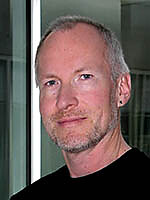
André Berchtold
André Berchtold is Associate Professor in Statistics in the Institute of Social Sciences at the University of Lausanne. He teaches courses on quantitative methodology and statistics, as well as on substance use, for the BA and MA programs in social sciences. He has a PhD in economic and social sciences, with a specialization in econometrics and statistics, from the University of Geneva. He is also member of the National Centre of Competence in Research LIVES: Overcoming vulnerability, life course perspectives.
Research interests André Berchtold is an expert in statistics applied to the social sciences, and he is developing new methods for the treatment of missing data and for the modeling of longitudinal data using Markovian models. He also has special interest in data collection using life history calendars. In addition to theoretical developments, he also published many articles in the field of health, especially regarding adolescent health and substance use.
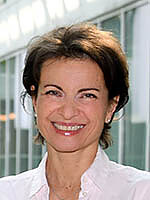
Laura Bernardi
Laura Bernardi is Full Professor of sociology and demography of the life course at the Life Course and Inequality Research Centre (LINES) of the University of Lausanne. She is member of the Swiss National Research Council and of the Swiss Academy of Humanities and Social Sciences. She is also co-Editor in Chief of the journal Advances in Life Course Research (https://www.journals.elsevier.com/advances-in-life-course-research) and President of the Scientific Council of the French Institut national d’études démographiques (INED). She teaches on migration, family and social policies, and life course theory. Before arriving to Lausanne, she worked at the Max Planck Institute for Demographic Research, at the Brown University and at the University of Rome.
Laura Bernardi has extensively worked on fertility and family diversity in a life course perspective. She has directed and been involved in several projects on fertility and family, nationally and internationally, studying reproductive choices, intergenerational relationships, family norms, family structures and their consequences on wellbeing and vulnerability.
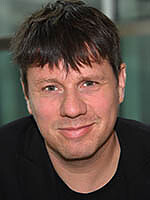
Felix Bühlmann
Felix Bühlmann studied sociology and political sciences at the University of Geneva, the Humboldt University Berlin and the University of Lausanne. After his PhD at the University of Lausanne (2008), he was a post-doctoral fellow at the University of Manchester and headed the Swiss social report at FORS. He has been assistant professor (2011) and then associate professor (2017) at the Faculty of Social and Political Sciences at the University of Lausanne.
Felix Bühlmann is particularly interested in the sociology of the life course and in economic sociology. His research is about occupational careers, careers of vulnerability and about Swiss and international elites. He has published in the British Journal of Sociology, the European Sociological Review, Sociology and Economy and Society.
Jacques-Antoine Gauthier
Jacques-Antoine Gauthier is sociologist and a senior lecturer at the university of Lausanne (Unil). He teaches an introduction to social sciences research at the bachelor degree and a quantitative approach to the life course perspective at the master degree. Before working at Unil he was a scientific collaborator successively at the Swiss Federal Statistical Office, at the École polytechnique fédérale de Lausanne and at Addiction suisse. He was also a Honorary Fellow of the University of Edinburgh from 2017 to 2018.
Research interests His research focuses on the ways in which life trajectories of women and men are shaped, in particular when experiencing transitions such as from school to work, to parentality or to retirement. He aims at uncovering the processes by which social institutions such as school, the family or the labor market anticipate and reproduce the systems of roles and values that form the frame for specific gender relationships. To do so, he is follwing a life course perspective that shows that individual trajectories are multidimensional, strongly interdependent and sensitive to the timing of events as well as to the context in which they take place.
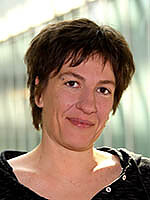
Lavinia Gianettoni
Lavinia Gianettoni is a social psychologist. Her research focuses on gender inequalities and their intertwining with other hierarchical social relationships (class, sexuality, nationality, religion, etc.). In her recent research, she has more precisely analysed how the gender, institutional and ideological system influences the career aspirations of young people at the end of their schooling. She is currently conducting longitudinal research to assess how the experience of sexist or homophobic discrimination impacts vocational training trajectories and the risks of disruption or drop-out that can result from it.
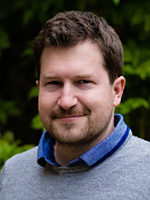
Michael Grätz
Michael Grätz joined LINES at UNIL with an Ambizione grant from the Swiss National Science Foundation. In addition, he is a researcher at the Swedish Institute for Social Research (SOFI), Stockholm University. Before, he worked at Nuffield College, University of Oxford and at Bielefeld University. He received his PhD in Political and Social Sciences from the European University Institute (EUI) in 2015.
His research aims at understanding the intergenerational transmission of advantage. For this purpose, he conducts both descriptive studies estimating differences in social mobility across countries, over time, and between groups within societies as well as causal studies that identify the effects of institutions on social mobility. A particular emphasis of his work is on socioeconomic differences in the impact of demographic factors, such as parental separation, and differences between siblings on children. Furthermore, his research explores which mechanisms underlie the intergenerational transmission of advantage, in particular the contribution of parenting to this process.
Personal web page
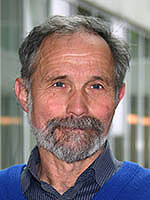
René Knüsel
René Knüsel has been an ordinary professor of sociology of social policies and social problems since 2004. After training in political science at the University of Lausanne, he taught, among other things, social policies at the University of Fribourg; he has collaborated with various health and social schools in French-speaking Switzerland. Among the approaches it has relied on is intervention research.
Her research focuses on a variety of social issues, including the issue of child abuse, career end-of-career issues, self-help groups. He has also developed research on the social and solidarity economy. His work also focuses on social and political minorities.
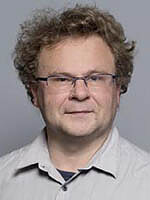
Jean-Marie Le Goff
Jean-Marie Le Goff is a socio-demographer and a senior lecturer at the Institute of Social Sciences (Unil). He holds a PhD in demography from the University of Paris Panthéon Sorbonne (1995). His teaching in Lausanne focuses on research methods, particularly quantitative methods. His work focuses on life course transitions, notably the transition to parenthood and inequalities along family life courses. He is interested in longitudinal quantitative methods, particularly life course events and transitions analysis. Moreover, he follows since 2006 about twenty families living in French-speaking Switzerland that he regularly interviews about their family life.
Anne Marcellini
Anne Marcellini is Associate Professor in Sociology of Sport at the Life Course and Inequality Research Centre (LINES) of the University of Lausanne. She is in charge of the Master Degree in "Adapted Physical Activities and Health" of the Institute of Sport Sciences. She published Body, Sport, Handicaps. The handisport movement in the 21st century. Sociological readings (Téraèdre, 2014), and Disability, Recognition and "Community living". Diversity of practices and the benefits (Alter Review, European Journal of Disability Research, special issue, 2, 2018). Before coming to Lausanne, she headed the "Health, Education and Disabling Situations" research center of the University of Montpellier.
Expertise Anne Marcellini has worked since the 1990s on the process of social participation, social inclusion and identity construction of people with disabilities. She is a specialist in qualitative approaches of body practices and social uses of damaged bodies. Her research focuses since 2008 in the field of visual and filmic sociology.
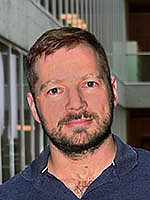
Davide Morselli
Davide Morselli's main research focus is on the psychosocial dynamics of social change and the effects of context on individual world-views and attitudes. He has been studying the psychosocial adaptation to critical life events and has been involved in the implementation of retrospective methods in survey designs to collect biographical data.
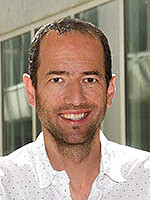
Daniel Oesch
Daniel Oesch is associate professor at the Life Course and Inequality Research Centre (LINES) of the University of Lausanne and member of the NCCR LIVES. He teaches classes on social stratification and the life course, the labour market and employment policy. He is the author of two books: Occupational Change in Europe (2013, Oxford University Press) and Redrawing the Class Map (2006, Palgrave Macmillan). Before coming to Lausanne in 2010, he worked at the Universities of Geneva, Pompeu Fabra and Zurich. He has been involved in several large surveys on unemployment in Switzerland, studying the employment trajectories after mass displacement or the role of social contacts for the access to jobs.
Personal web page
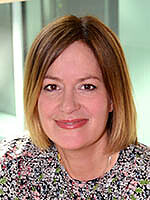
Caroline Roberts
Caroline Roberts is Assistant Professor in Survey Methodology. She is currently co-director of LINES, and is also in charge of the MA in Public Opinion and Survey Methodology, for which she teaches courses on survey research methods and questionnaire design. She also teaches quantitative methods for undergraduates. She has a PhD in Social Psychology and a MSc in Social Research Methods from the London School of Economics and Political Science. Prior to working at UNIL, she worked at the LSE, the UK’s Office for National Statistics, City University London, and Stanford University, as a survey methodologist in the coordinating teams of a number of large-scale social surveys.
Research interests Caroline’s main areas of expertise are in survey methodology and the measurement of social attitudes. Her research interests concern the optimisation of survey data collection protocols, and the measurement and reduction of different types of survey error, with a particular focus on methods to assess nonresponse error, and the antecedents of response errors. Her current research investigates the potential for incorporating smartphone app-based data collection in the context of web surveys of the general population, focusing especially on ways to address public concerns about data privacy and reduce respondent burden.
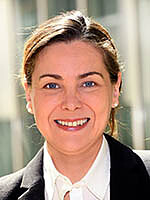
Stephanie Steinmetz
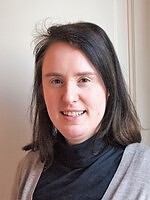
Leen Vandecasteele
Leen Vandecasteele is an Associate Professor at the Life Course and Inequality Centre (LINES) of the University of Lausanne. She is also a member of the National Centre of Competence in Research LIVES. Having obtained her PhD from the University of Leuven, she continued her career as a Postdoctoral Fellow at the University of Manchester and visited the University of Harvard as a visiting fellow in the Multidisciplinary Program in Inequality and Social Policy. She was a Max Weber Fellow at the European University Institute in Florence and from 2012 to 2017, she worked as a Junior Professor at the University of Tuebingen in Germany.
Research interests Leen Vandecasteele’s main areas of interest are social inequality, poverty and social policy in a life course perspective. She has a particular interest in uncovering processes of cumulative disadvantage at crucial life transitions and determining the individual, social network/family and social policy characteristics that help people cope with economic hardship. Her research examines differences between countries as well as within countries between smaller units of aggregation such as neighbourhoods and trends over time. She works with large-scale quantitative cross-national and longitudinal data sources. Leen Vandecasteele is currently conducting a research project financed by the SNSF on partner effects, in which she analyses the influence of one partner’s socio-economic characteristics on the other partner’s labour market transitions, taking into account different contextual factors. She is also involved in research of the NCCR LIVES on the question how the meso-level and policy context affects trajectories of economic vulnerability.
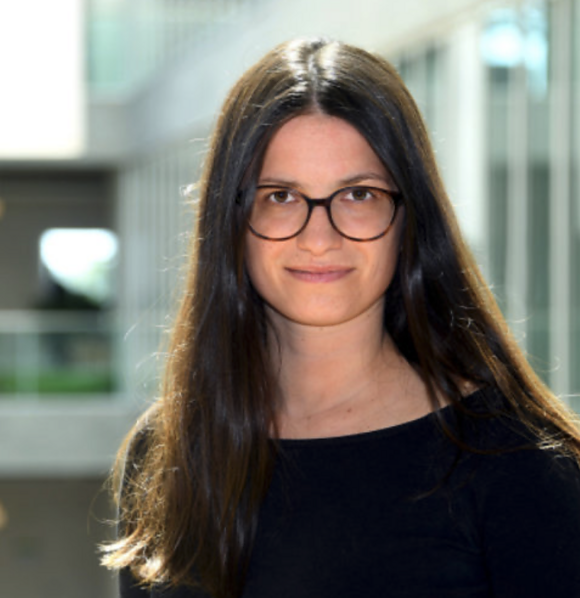
Ajdacic Lena
Has a background in sociology and political sciences. She completed her dissertation at the University of Lausanne, where she studied the rise of top incomes and the gender patterns in corporate leadership. She holds a master’s degree from the University of Amsterdam where she was part of the CORPNET research group.
In November 2023 she joined the Institute of Social Sciences as a post-doctoral researcher in a project focusing on the financial sector in Switzerland. Her current work encompasses several key areas, including the career aspirations of recent generations of business graduates, the role of various types of networks structuring the industry and finally, the dynamics, and cleavages in the sector due to the expansion of the crypto valley.
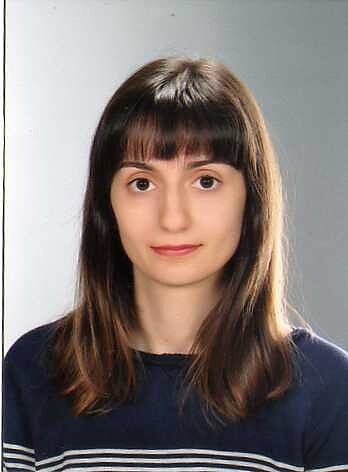
Nursel Alkoç
is a graduate assistant at the Institute de social sciences and a PhD candidate in the framework of the FORS-SSP common scientific program since May 2021. She holds a bachelor’s degree in psychology from Boğaziçi University and a master’s degree in public opinion and survey methodology from the Universities of Lausanne, Lucerne, and Neuchatel. Her main research interests are social inequalities, political participation, intersectionality, and quantitative research methods.
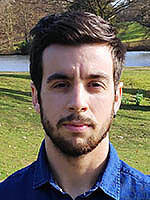
Marc Asensio Manjon
Marc Asensio is a graduate assistant of Social Sciences at the University of Lausanne since November 2019 and a PhD cancidate in the framework of the FORS-SSP collaboration program. Marc holds a bachelor’s degree in Political Science (Universitat Pompeu Fabra) and a MSc in Survey methods for social research (University of Essex). Previously, he worked as a researcher at the Research and Expertize Centre for Survey Methodology (RECSM) where he was mainly involved in projects related to the European Social Survey.
His main research interests are survey data quality, web surveys, questionnaire design & improvement and new tools for data collection.
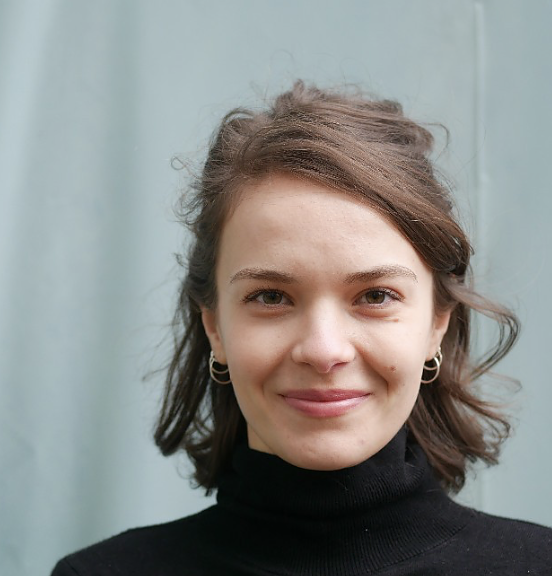
Johanna Behr

Maite Regina Beramendi

Flavien Bonelli
Flavien Bonelli holds a bachelor’s degree in International Relations and a master’s degree in Socioeconomics, specializing in Demography and Quantitative Methods (University of Geneva). Since October 2024, he has been a graduate assistant at the Institute of Social Sciences and a doctoral candidate within the FORS-SSP collaborative program, the DReMSS platform (Developments in Research and Methods of the Social Sciences). His primary research interests include social inequalities and stratification, life course analysis, family dynamics, and longitudinal quantitative methods. His dissertation focuses on the balance between paid and unpaid work within dual-earner couples.

Guillaume Bornet
Guillaume Bornet is a graduate assistant and a PhD candidate at the Institute of Social Sciences since October 2023. He holds a Bachelor’s degree in psychology and a Master’s degree in social and intercultural psychology, both from the Université de Lausanne. His main research interests are political attitudes and their link with occupational class. He is also more broadly interested in educational sciences, science communication, and novel quantitative methods.

Alicia Garcia Sierra
Alicia is a postdoctoral researcher on the EQUALOPP (Liberal and Radical Equality of Opportunity) project. She was previously a doctoral candidate in sociology at Oxford-Nuffield College and holds a master's degree in social science research from the Universidad Carlos III de Madrid. Her research aims to understand how inequality emerges and is reproduced from one generation to the next, as well as the role that various institutional configurations, such as education systems, play in this context. She is also interested in the use of longitudinal household survey data and causal approache

Vasilena Lachkovska
Vasilena Lachkovska holds a Master's and Bachelor's degree in Clinical Psychology with a specialization in Affective Psychology from the University of Geneva. With a passion for national identities, group dynamics, globalization, migration, and culture, she delves into what fosters a sense of belonging in a diverse world. Trained in quantitative methods and multivariate analysis, she explores social cohesion with a methodical approach, sensitive to cultural and human nuances. Driven by the vision of a world where anyone can feel at home anywhere, keep their roots, and enjoy equal opportunities, she embarked on a thesis titled Social Cohesion and Belonging in a Multicultural Context – Switzerland and Beyond.
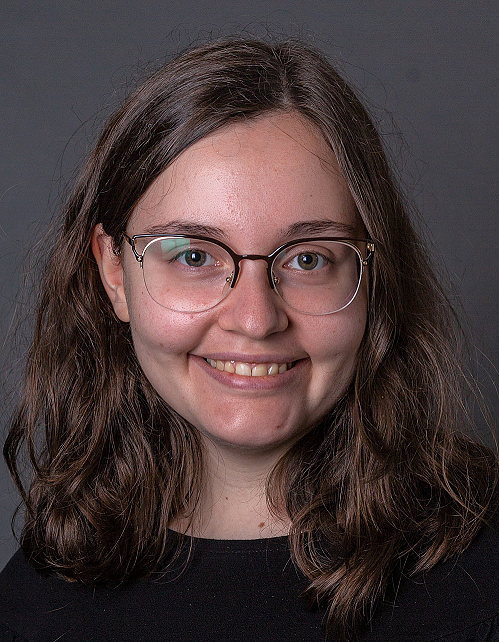
Claire Mariano
Claire Semaani holds a master’s degree in Public Opinion and Survey Methodology from the Universities of Lausanne, Neuchâtel and Lucerne. She is a graduate assistant at the Institute of Social Sciences since February 2023. Before starting her PhD, she worked on surveys linked to the health of the Swiss population. These experiences gave her the motivation to use her knowledge in Social Sciences for the health domain.
Claire’s main interests lie in quantitative methods, social inequalities and health. Her thesis focuses on the analysis of interrelationships between the family members’ mental health over time.

Andres Martinez Torres
Andrés Martínez Torres holds a Bachelor of Science with Honours degree in International Politics by City University London as well as a Masters of Science in Crisis and Security Management from Leiden University, with a specialisation in the governance of crisis. During his studies, he focused on security studies and radicalisation, ranging from the study of Antifa groups in the UK to the analysis of the Christchurch massacre terrorist manifesto. Andrés also has experience working charities and NGOs both in Switzerland and in the UK, at the local and international levels. He joined LIVES in March 2022 as doctoral student working in the FNS project: "People-Opinion Networks: A study of polarization in word embeddings and social networks in Switzerland and Southern Africa", a multidisciplinary project in collaboration with universities in South Africa and Ireland.
Andrés' research interests revolve around political polarisation and radicalisation at the individual, group, and social levels — both from a political and socio-psychological perspectives. He is also interested in new methodologies to study opinion formation and group relations. His doctoral thesis studies polarization and radicalization in contemporary and historical contexts, using multidisciplinary and innovative methods to study personal relations and opinion formation and change under the supervision of Davide Morselli.

Benjamin Ménard
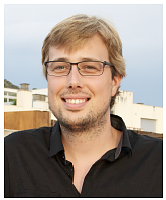
Benjamin Moles Kalt
Since October 2022, Benjamin Moles is a PhD candidate at the Institute of Social Sciences. He holds a degree in Sociology from the University of Barcelona and a master's degree in Social Policies, Work and Welfare from the Autonomous University of Barcelona. Previously, he worked as a researcher at the Center of Sociological Studies for Everyday Life and Work (Autonomous University of Barcelona) and the LIVES Center (University of Lausanne).
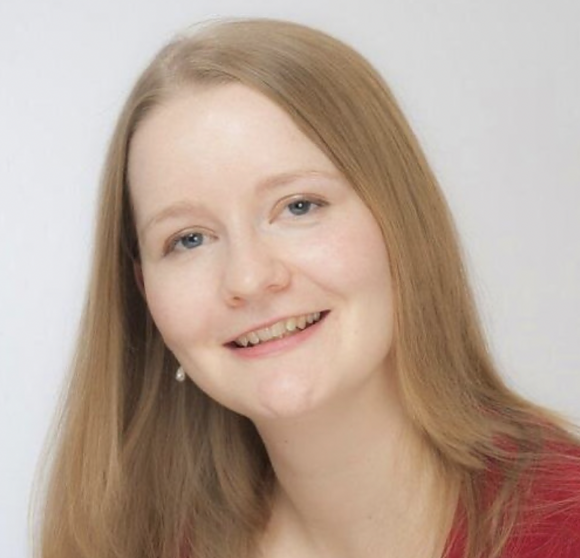
Katy Morris
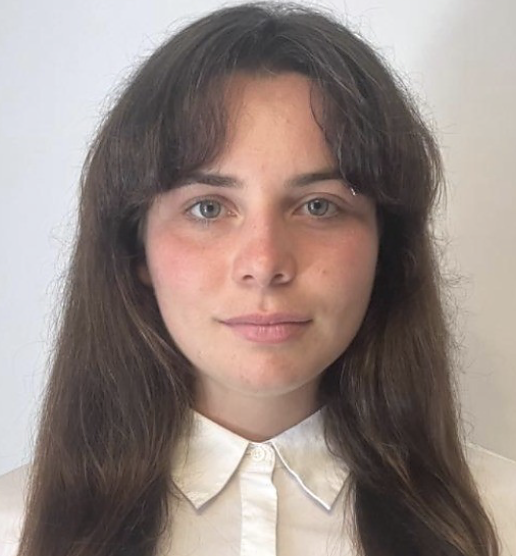
Sonia Petrini

Niels Rohrer

Magdalena Spasic
Magdalena Spasic is a PhD student in sociology at the ISS (SSP - UNIL) and the LIVES center. Her thesis is supervised by Laura Bernardi and co-supervised by Jöelle Darwiche. With a background in psychology, her interests focus on youth’s development and prevention. She particularly focuses in her thesis on the beneficial and detrimental dimensions influencing children’s well-being according to custody arrangements in Switzerland.

Gina-Julia Westenberger
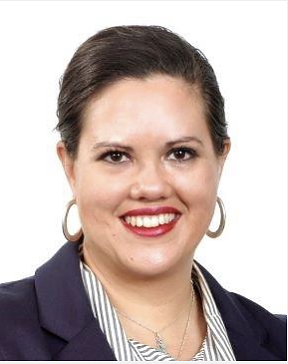

Marion Beetschen
Marion Beetschen is editorial assistant for the Swiss Journal of Sociology.
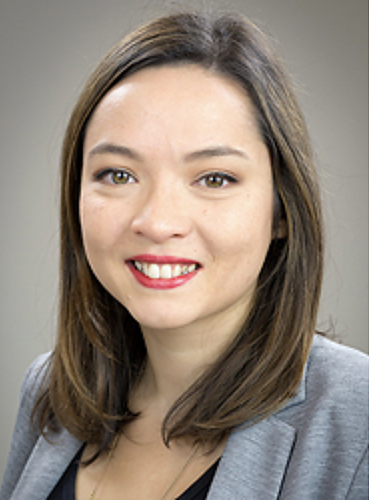
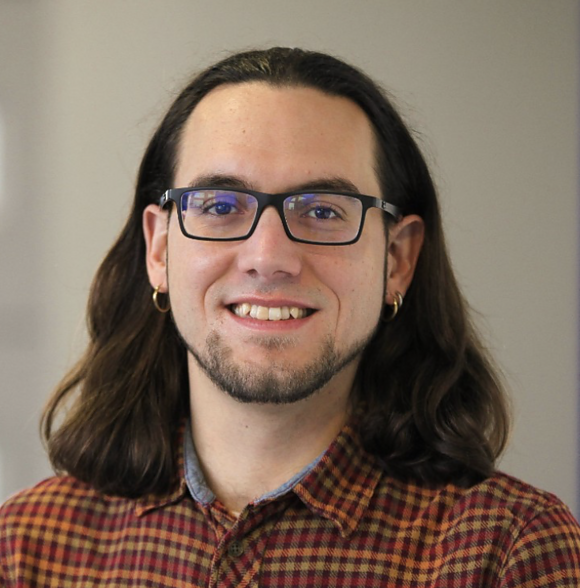
Jeremy Kuhnle
I am a postdoctoral researcher in the Horizon Europe project "EqualStrength" at the University of Lausanne (Switzerland) and an external research fellow at the Mannheim Center for European Social Research (MZES) at the University of Mannheim (Germany). Before moving to Lausanne, I was a postdoctoral fellow at the Trento Center for Social Research Methods at the University of Trento (Italy).
I completed my doctoral studies at the University of Mannheim in September 2021, I also hold a M.A. from the University of Mannheim. Prior to Mannheim, I completed my undergraduate education in the Indiana University system.
My research investigates the role of work, occupations, and organizations on social inequality and discrimination, with a particular focus on gender and ethno-racial groups. I am interested in how inequality is created, maintained, and promoted through discrimination in different life domains e.g., employment, housing, and childcare.

Steven Piguet
Steven Piguet studied Political Science and History at UniL (MA 2009). Since 2007, he has been woriking on the SNSF research project “Swiss Elites in the 20th century”.
He is also associated with the Observatory of Swiss Elites (Obelis) founded in 2015 and the technical platform of LaDHUL (PlaTec) since 2019.
Currently, he contributes to data management for the FNS projects “Financial elite,” “Rockefeller fellows,” “Local power structures and transnational connections”. He is also a research assistant at Geneva University in an ERC project on “Citizen Sciences”.
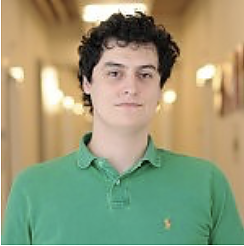
Thierry Rossier
Thierry Rossier is a senior researcher at the University of Lausanne in the frame of the SNSF Sinergia FamyCH project, and a visiting fellow in the Department of Sociology at London School of Economics. He finished a PhD in political science at the same university in 2017. After that, he obtained three postdoctoral grants to stay at Copenhagen Business School, LSE, and the University of Fribourg. He is interested in inequality, stratification, precariousness, and the life course, and has published on topics related to the sociology of elites, the sociology of science, the social studies of economics, and the sociology of work and employment. He also is a specialist of descriptive quantitative methodologies, such as sequence analysis, geometric data analysis, and social network analysis. In the FamyCH project, he is co-responsible of the implementation of the project’s panel survey, and focuses specifically on the inequality determinants of children’s and parents’ health, well-being, and precariousness in the context of post-separation custody arrangements, using longitudinal and inferential methods.
